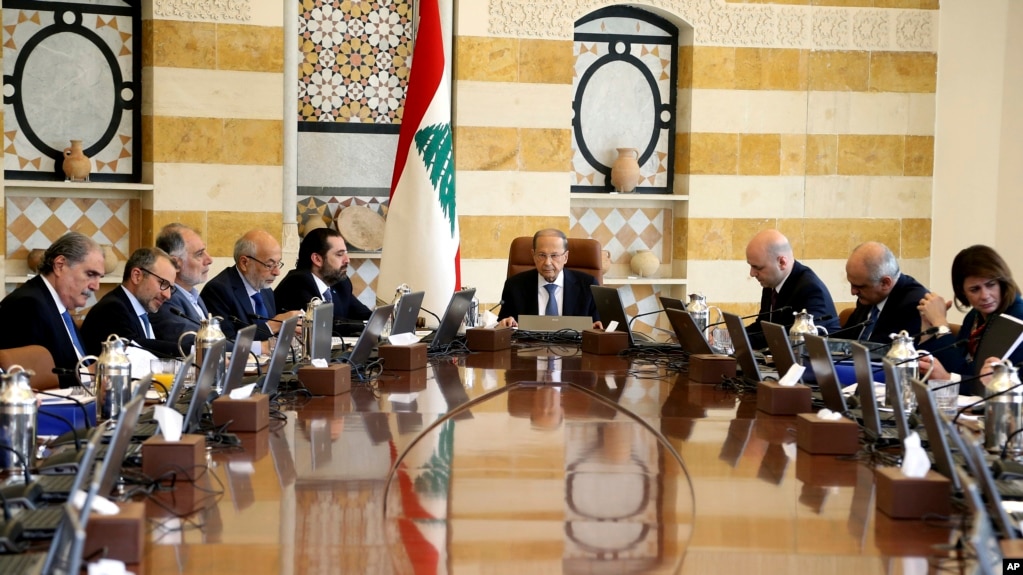
BEIRUT — Lebanon’s finance minister says the government has started open-ended discussions to quickly approve the country’s draft austerity budget. Lebanon’s economy is suffering from slow growth, a high budget deficit and massive debt. Ali Hassan Khalil told reporters after a Cabinet meeting Tuesday that the government aims to reduce the percentage of the budget deficit compared with the gross domestic product. Leaks through the media about steps that could include cutting end of service and social benefits of civil servants have led to protests around Lebanon by retired military personnel and others. The Labor Union called for a three-day strike starting Thursday if workers’ demands are not met. Khalil said he does not know the reason behind the call for the strike adding that the budget has not been approved yet.
Jason Tuvey, Middle East economist at Capital Economics, said it would be extremely difficult for politicians to agree enough austerity measures, which are deeply unpopular. “We still think the Lebanese authorities will ultimately be forced to turn to some sort of debt restructuring,” he said. In Tuesday’s protest, a few hundred veterans gathered in front of the central bank, the finance ministry, and Beirut port, rallying against any potential cuts to their pensions. “This is our right, our sweat and blood,” former sergeant major Khodr Noureddine said. “Our salaries can’t even feed us for a day, there’s no school funding, no good healthcare.” A spokesman for the protesters, retired brigadier general Ali Omar, vowed they would remain in the streets to ensure they keep their pensions. He said cuts would hit tens of thousands of people, including wounded or handicapped soldiers, and families of killed soldiers.



